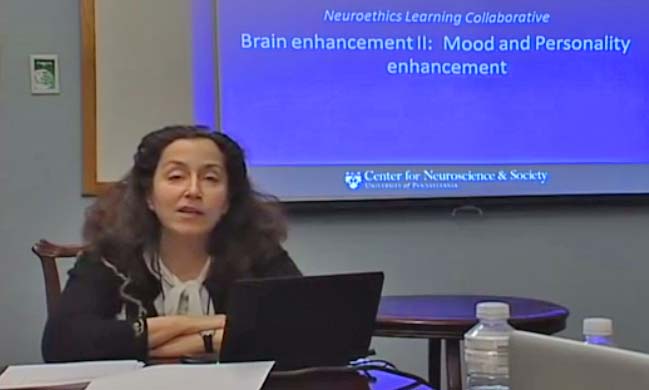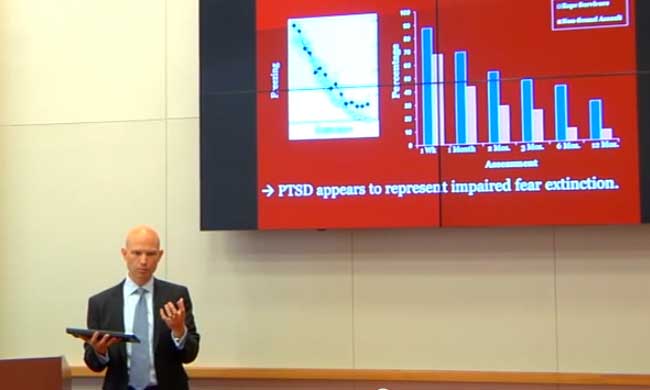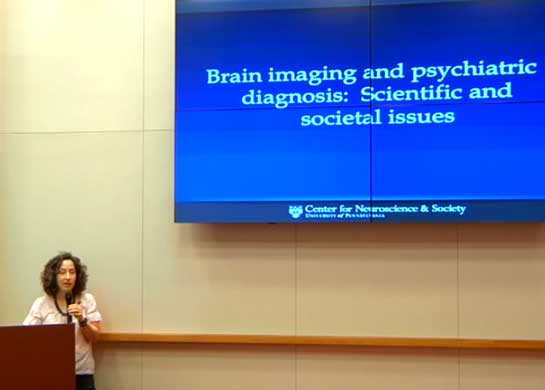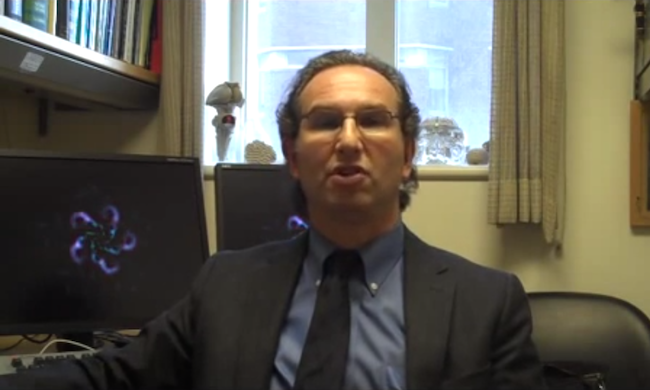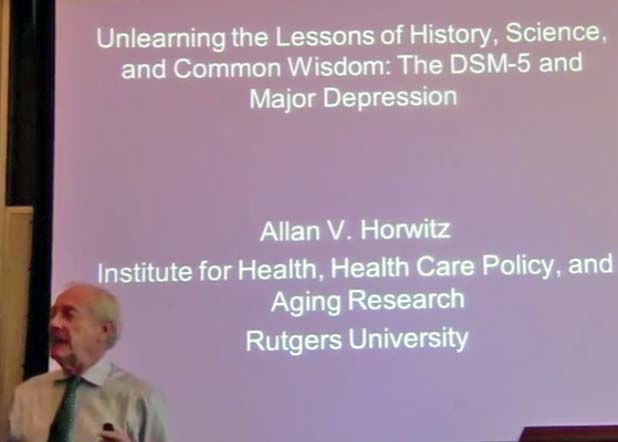Although therapies are limited and a cure remains elusive, the onset of Alzheimer’s disease (AD) can now be predicted with a degree of accuracy years [...]
Introduction to Neurolaw: Part 1 (Martha J. Farah, PhD)
This brief introduction to neurolaw focuses on the question "What is the relevance of neuroscience to law?" Professor Farah describes three possible roles for neuroscience, [...]
Introduction to Neurolaw: Part 2 (Martha J. Farah, PhD)
The nature of excusing conditions, including insanity and immaturity, are reviewed, and the relevance of neuroscience to legal excuses and mitigation is discussed. Slides for [...]
Cognitive Enhancement (Martha J. Farah, PhD)
One of the most widely discussed issues of neuroethics is cognitive enhancement. In this lecture Professor Farah reviews the science and ethics of pharmaceutical cognitive [...]
Neuroethics – Are Better Brains Better? (Anjan Chatterjee, MD)
Dr. Anjan Chatterjee, professor of neurology at Penn and faculty member of Penns Center for Cognitive Neuroscience Ethical dilemmas arising from advances in the neurosciences [...]
Introduction to Neuroethics (Martha J. Farah, Ph.D)
In this lecture, delivered at the end of a neuroethics course, Professor Farah provides an “introclusion” (intended as an introduction or conclusion) to the field [...]
Personality and Mood Enhancement (Martha J. Farah, PhD)
Cognitive ability is not the only trait that people seek to enhance pharmaceutically. Personality and mood can also be altered pharmacologically and are increasingly used [...]
The Medication of Sadness (Robert DeRubeis, PhD)
Recent decades have seen progressively more inclusive definitions of depression in psychiatry, with less severe mood-related problems being classified as depression and correspondingly more patients [...]
Combat-related PTSD and the Brain (Seth Gillihan, PhD)
Post-Traumatic Stress Disorder poses important scientific challenges to researchers, personal challenges to sufferers, and social, ethical and economic challenges to society. In this lecture, researcher [...]
Brain Imaging and Psychiatric Diagnosis: Scientific and Societal Issues (Martha J. Farah, PhD)
Psychiatric disease is generally believed to be brain disease, and neuroimaging has been used fruitfully in psychiatry research. Why, then, is neuroimaging not used for [...]
Incidental Findings in MRI Research (John Detre, MD)
John A. Detre, M.D. Dr. Detre is Professor of Neurology at Penn and directs Penn's Center for Functional Neuroimaging, He was instrumental in developing ASL [...]
A Clinician Looks at Enhancement (Anjan Chatterjee, MD)
Anjan Chatterjee, MD Dr. Chatterjee is Elliott Professor and Chair of Neurology at Pennsylvania Hospital. He has long been interested in the social and ethical [...]
The DSM-5 and Major Depression (Allan Horwitz, PhD)
Depression has become the single most commonly treated mental disorder, amid claims that one out of ten Americans suffer from this disorder every year and [...]






